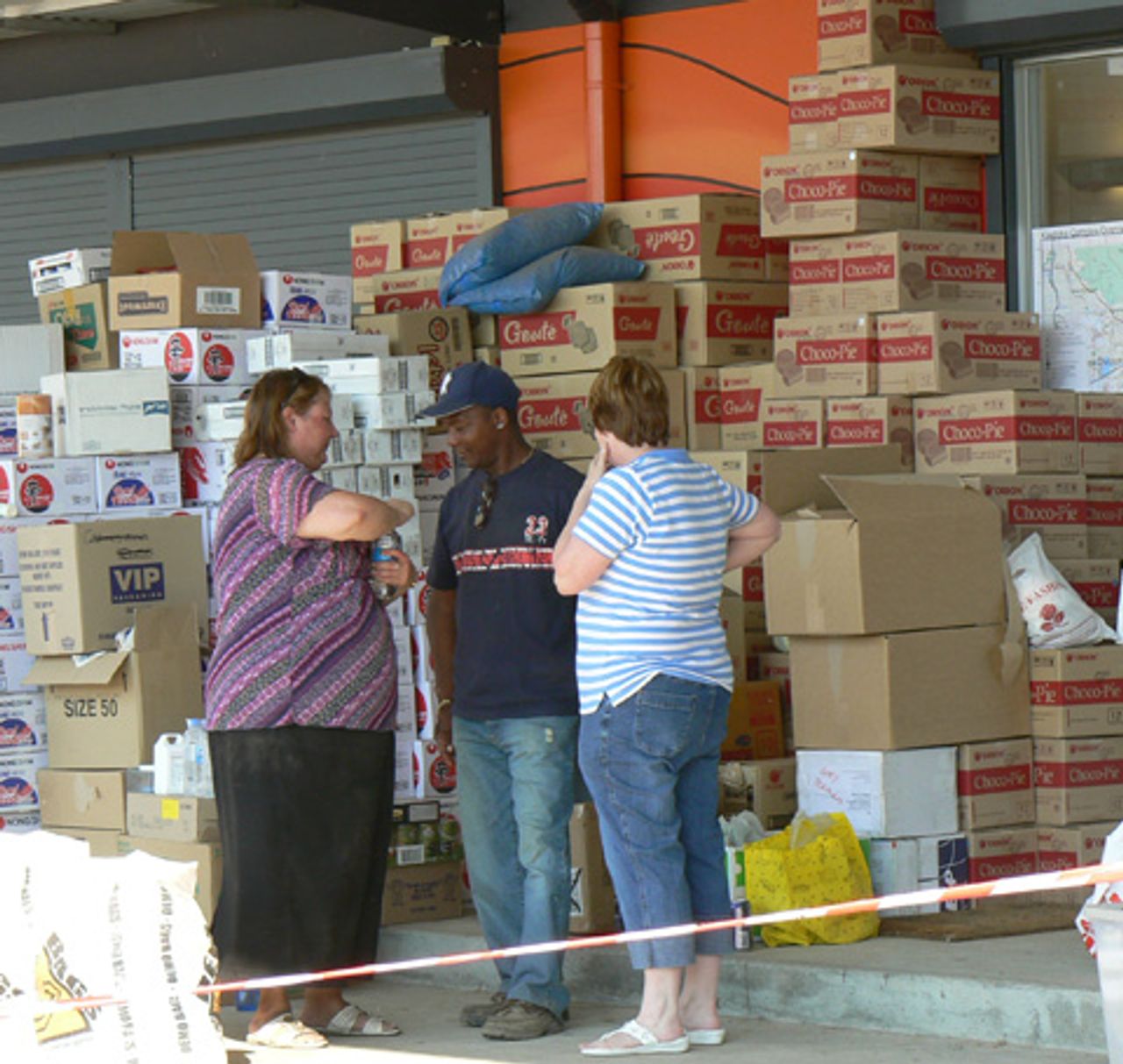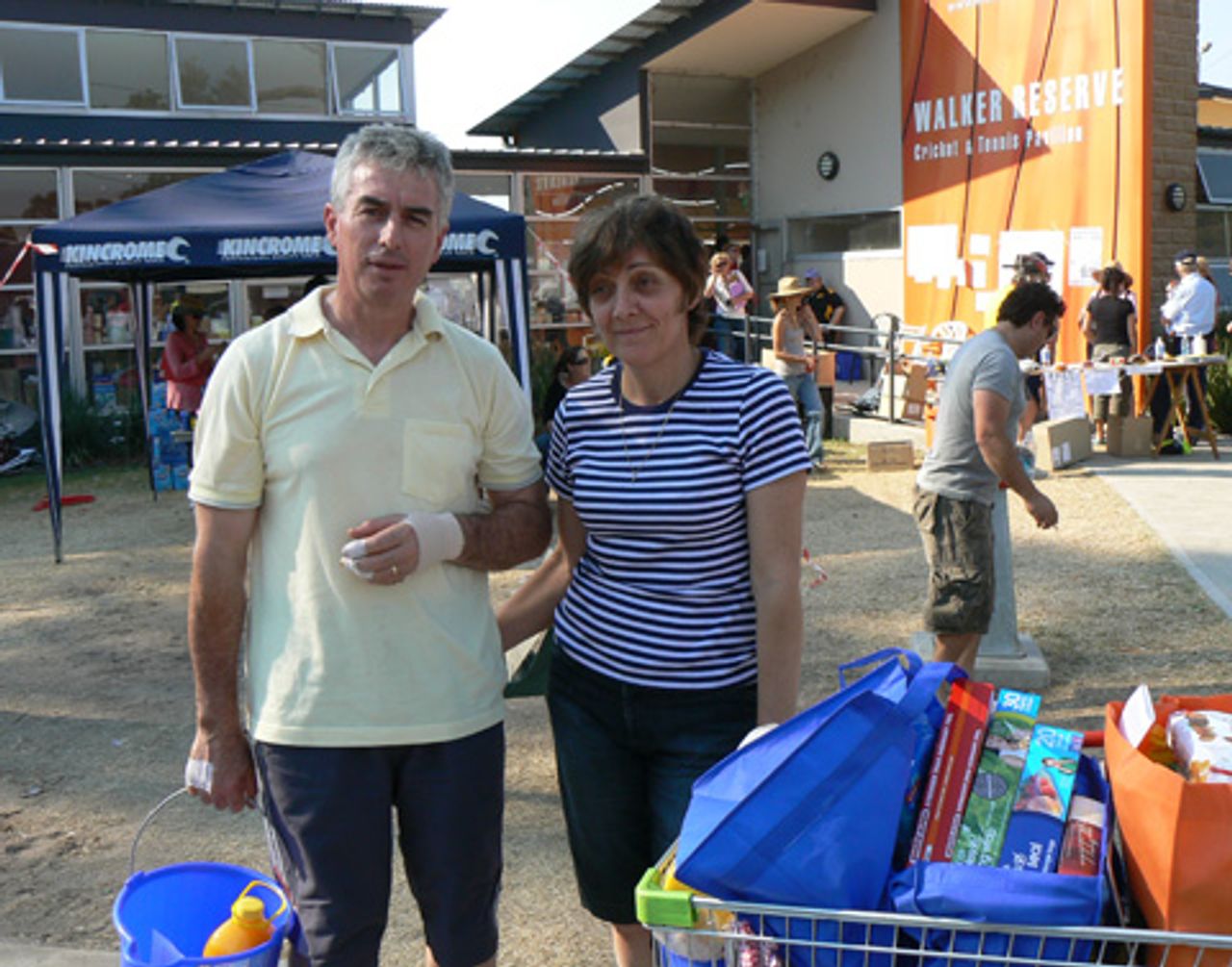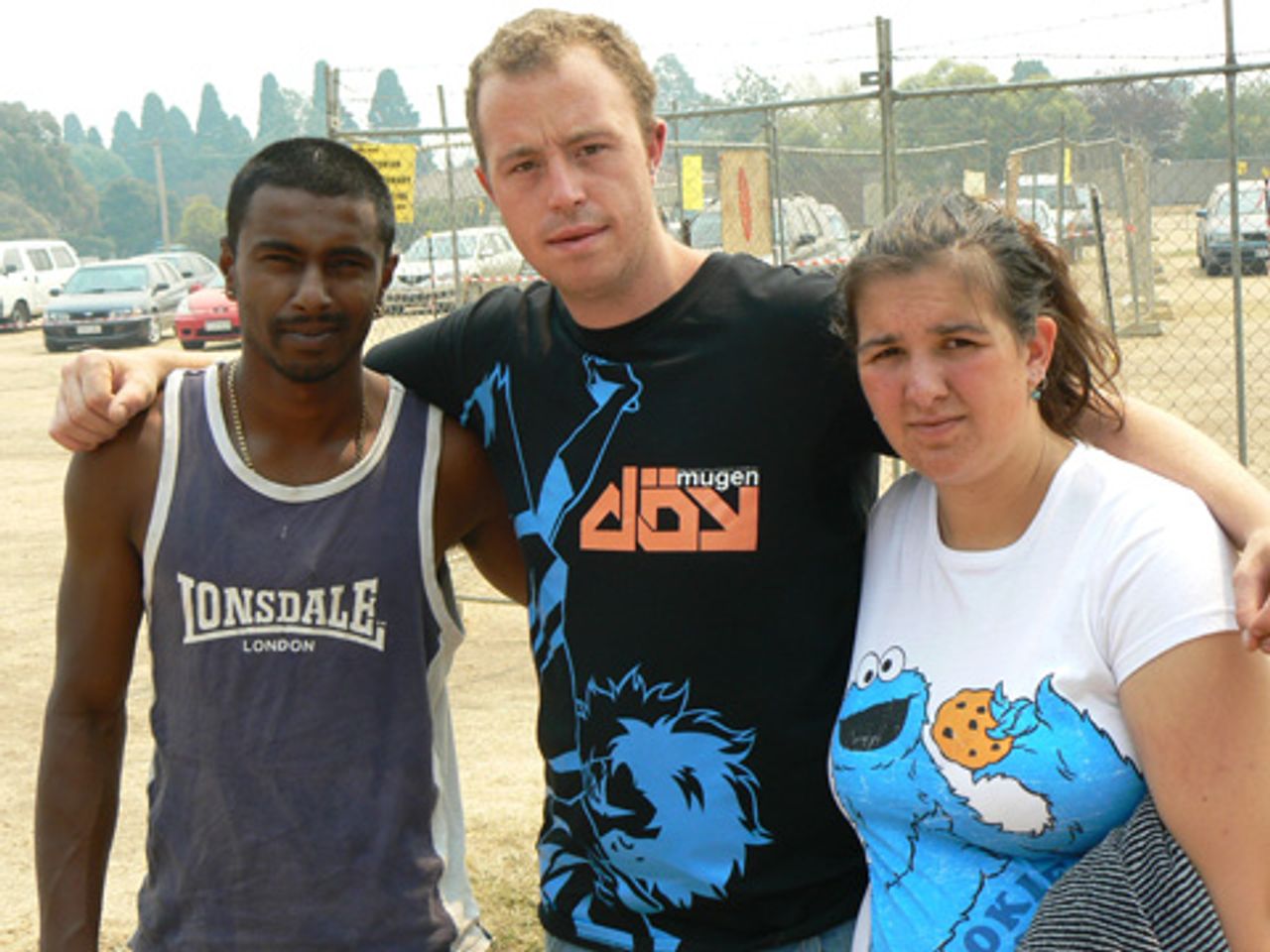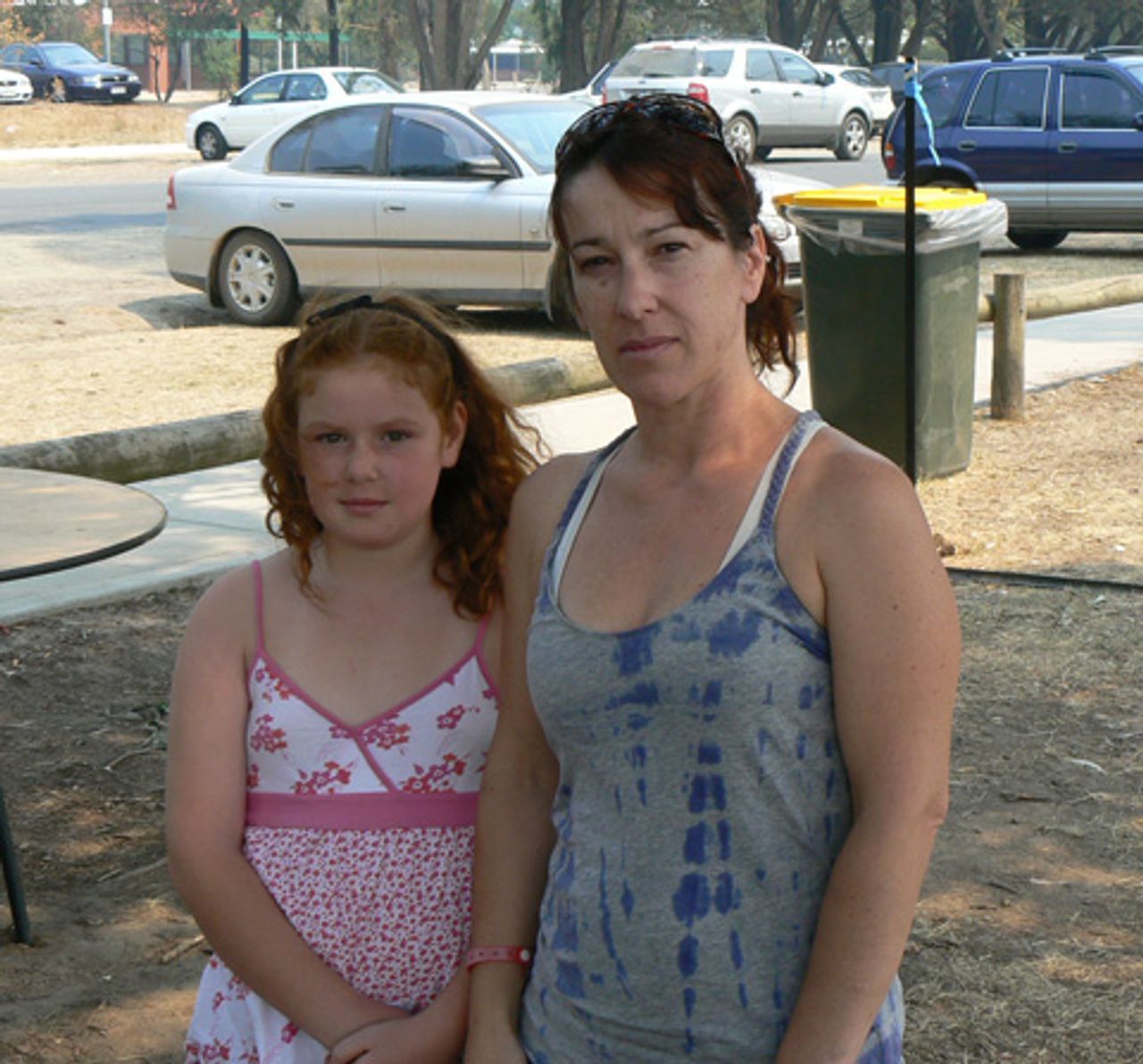As tens of thousands of ordinary people across Australia and around the world donate funds to assist the more than 7,000 made homeless by the massive bushfires that swept through Victorian towns and hamlets on February 7, more information is emerging about government culpability in the tragedy.
While the corporate media continues to focus on claims that several fires were deliberately started, with extensive reportage over the weekend following the arrest of a man on arson charges, a class action lodged on Friday in the Victorian Supreme Court points to the role of government policy.
The legal action against the Victorian government and SPAusNet, a private electricity maintenance company, highlights the catastrophic human consequences when the provision of power and other basic services is dictated by the drive for profit. The case centres on a two-kilometre section of power transmission lines, which reportedly snapped during high winds, sparking a fire in a pine forest. The blaze later raced through Strathewen, Humevale, Kinglake and St Andrews, killing at least 100 people and destroying 1,000 homes.
Maintenance of Victoria's power lines was contracted out when the former Kennett Liberal government privatised the State Electricity Commission in 1995. SP AusNet's legal liability is capped at $100 million but, according to current estimates, the cost of the Victorian fires will be over $500 million. Legal action is now being contemplated by other law firms because other blazes were started by similar faults—one in a power-line just outside Horsham and another in a power pole near Mudgegonga.
 Volunteer workers at Whittlesea emergency relief centre
Volunteer workers at Whittlesea emergency relief centreQuestions are being raised about the government's Energy Safe Victoria, which audits safety standards. The agency had reported that power-line maintenance companies were "well prepared for the 2008-09 bushfire season". An agency spokesman told the Age newspaper yesterday "there were no regulations applying to the distances between poles supporting electricity lines and spans of one kilometre were not unusual".
The state Labor government continues to claim that evacuees' homes will be rebuilt, that new fire safety standards will be implemented and that a Royal Commission will "thoroughly investigate" the tragedy. It clearly hopes that this will divert attention from its own responsibility for the tragedy.
The terms of the royal commission are expected to be announced today, but Premier John Brumby has already told the media that the inquiry will not be completed until mid-2010 and that any recommendations will not be implemented until the 2010-11 bushfire season.
Bush fire experts have condemned the government over its consistent refusal to act on warnings that horrendous bushfires were inevitable unless the state initiated serious fuel-reduction programs. In mid-December, for example, Forest Fire Victoria—a group of scientists and forestry experts—criticised the government's "Living with Fire" policy and said the government had failed to seriously act on bushfire safety recommendations made last June by the Victorian Parliamentary Environment and Natural Resources Committee.
In response to the tragedy, which appears to have claimed the lives of well over 200 people, including many young children, there has been a tidal wave of support for the victims, involving formal and informal aid of every description. Unlike official policy, this reaction of ordinary people has not been driven by the cash nexus, but by immense social need.
Survivors describe inferno
Hundreds of survivors of the fires are now living in temporary accommodation across Victoria—with friends and relatives—or in tents in towns like Whittlesea and Yea to the north of the capital, Melbourne.
WSWS reporters travelled to Whittlesea last weekend and spoke with survivors from the nearby hamlets of Humevale, Strathewen and Flowerdale, and the towns of Kinglake and Kinglake West. Some were still in shock and unable to speak. Others were willing to discuss the horrendous impact on their lives. Many were angry about the government's role.
The ferocity of the fire at Kinglake, where at least 550 houses were incinerated, horrified even those with bushfire fighting experience.
 Greg and Fotini Jackson
Greg and Fotini JacksonGreg Jackson and his wife Fotini have lived on Bald Spur Road, on a ridge above the town, for 21 years. With Fotini's 80-year-old mother, they barely escaped with their lives. Fifteen of their neighbours died in the inferno.
Greg said: "I've fought big bushfires in the Blue Mountains (west of Sydney, NSW), but I've never seen anything like this. Homes just blew up. You can't fight a fire front like this.
"My home blew up. My roof lifted off. It's a Colorbond roof—with 110mm roofing screws that could withstand 150 km winds, but it just blew up. The fire was funnelled up as though up a chimney. It was like a thermonuclear explosion.
"One of my friends described it brilliantly—it was like the firestorms that took out Hamburg. I've seen many houses burning in bushfires, but I've never seen houses explode like that."
Fotini added: "We opened the roller door of the garage and all we could see were flames. The bushes were still burning but our neighbours had a bare patch of grass, already burnt. We ran there and threw a blanket from the garage over mum's head. She still has burns on her legs from running across the garden."
Greg continued: "We've all been frantic for three or four days. We were a very tight knit community, with a lot of long term residents in our street. I knew my neighbours and I saw them burn to death in their cars. They didn't have a chance."
Greg said the government's "stay and defend or go" policy was "fruitless". "The first we knew about the fire was the noise—we thought it was plane engines, it was deafening. ‘Stay and defend or go' is fine if you know when the fire is coming. No-one here knew where it was coming from."
The critical issue was early warnings, he continued, but "they [the government] just won't spend the money. You'd need at least an hour's warning because here in Kinglake there are only two ways out—Whittlesea to Yea or St Andrews—and that was no way because of the fire."
 Rick and Lauren Watts, and their friend Neil Rao (left)
Rick and Lauren Watts, and their friend Neil Rao (left)Rick and Lauren Watts, and their friend Neil Rao, spoke to the WSWS outside the food distribution centre. Rick, who fought to save five houses in Kinglake, had many criticisms of government policy, including the Brumby government's "Living with Fire" policy, which meant that Kinglake fire trucks were despatched to an earlier fire in Kilmore, leaving Kinglake undefended.
"Kinglake was left with no fire brigade and no police. The trucks had been sent to Kilmore. I've been in the fire brigade for 10 years. There was always a law—the trucks had to be on the hill. Because of the government we got gutted at Kinglake. They should have been getting generators ahead of the fire—so people would have had a chance of fighting it. As soon as the power went, I couldn't keep fighting the fire at my place."
Rick also criticised the lack of early warning communications systems: "Yes, there should be satellite technology to give early warning but look at Google Earth; you have to pay too much for it. They could have a satellite web with the CFA web site, but they won't do it because it is more money.
"This fire came at 80 kph, and then up the hill multiplied by two to 160kph and then on the top it multiplied again to 300kph. In Kinglake we clocked the wind at 258kph. When we were racing to get out, driving at 110kph, the fire overtook us."
Rick and Lauren said emergency siren warnings in the town had been stopped some years earlier. "There should have been a warning system," Rick said. "Every Sunday the Kinglake fire siren used to go off at 11am. They could have had it going non-stop and given people a warning ahead. It hasn't been used for years—the motels buried it because their guests didn't like it."
 Sina Imbriano with her daughter Tessa
Sina Imbriano with her daughter TessaSina Imbriano has six children and has lived in Humevale for 14 years. Her house survived but some of her children's school friends were killed in the fire. She was angry about the failure of state and federal governments to set up a recommended telephone warning system. "While all this money is being raised, the government is getting off light. Something like this has to happen before it [the government] does anything," she said.
Asked to comment on the state's "stay and defend or go" policy, Sina said: "I saw the flames and I ran. What about the people who did stay and fight? They died too. If they had put in that phone system—how many people would have been saved? I had friends evacuated from Heathcote and they contacted us. My friends said, ‘pack' and 15 minutes later it was on us.
"Today there was news of a class action against the power company over fallen power-lines causing the Kinglake fire. They are negligent if they didn't clear the lines of trees. It is a lack of maintenance. Unless something happens they don't bother."
The authors also recommends:
As death toll rises
Evidence mounts of lack of planning prior to Australia’s worst bushfire
[11 February 2009]
